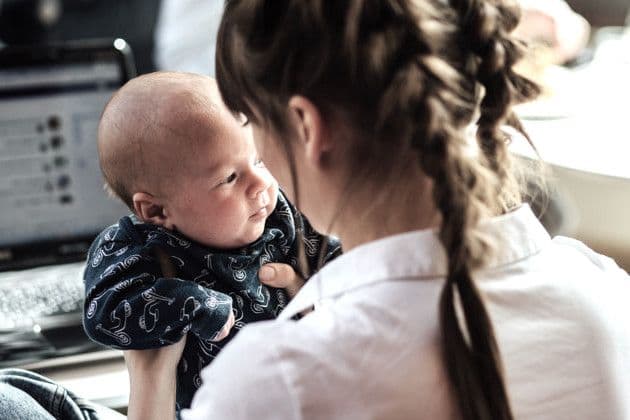Longer Maternity Leave Reduces Risk of Postpartum Depression
Pregnancy News
Obie Editorial Team

Maternity leave and postpartum depression risk
A new study shows that the more time a woman takes off from work after having a baby, the lower her risk for postpartum depression. This research is the first of its kind to study the relationship between the duration of maternity leave and the risk for postpartum depression in the first year after childbirth.
Women in the United States return to work quickly after childbirth – many go back after just three months and some return even sooner. The Family and Medical Leave Act allows 12 weeks of unpaid leave for eligible workers, but many women are not covered under the law or cannot afford to take six months of unpaid leave. In this study, published in the Journal of Health Politics, Policy, and Law, about 7 percent of mothers returned to work within six weeks of childbirth, 46 percent by 12 weeks, and 87 percent were working again six months after delivering a baby.
About 13 percent of mothers experience postpartum depression within the first year of childbirth. Symptoms of postpartum depression include severe mood swings, intense irritability or anger, loss of appetite, insomnia, difficulty bonding with the baby, and thoughts of harming oneself or another.
Results of postpartum study
For this study, the researchers used data collected from the Maternal Postpartum Health Study that followed a group of 800 women for one year after childbirth. That previous study collected information at six weeks, twelve weeks, six months and twelve months.
Researchers in the new study used the Edinburgh Postnatal Depression Scale, a 10-question survey that measures symptoms of postpartum depression; a high score on this scale indicates possible depression. They found that women who were on maternity leave during the six-week, twelve-week, and six-month timeframes had lower postpartum depression scores than did those who had returned to work by then. This study underscores the value of longer maternity leaves. Out of 181 nations, the United States is one of only three that do not provide paid maternity leave. The authors of the study stress the need to extend maternity leaves in the U.S., saying that 12 weeks of unpaid leave is insufficient for reducing the risk of postpartum depression.
Source: University of Maryland. "Longer maternity leaves lower women's risk of postpartum depression." Medical News Today. MediLexicon, Intl., 17 Dec. 2013. Web. 31 Dec. 2013.









